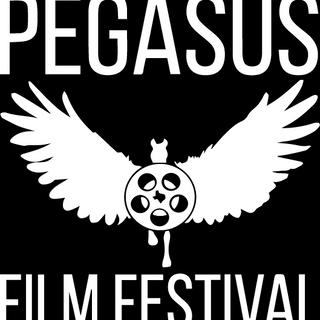Film Review #2 The Lighthouse (2019)
- Pegasus Film Festival
- Dec 31, 2019
- 2 min read
The Lighthouse
By Julia Hunt
“Salvation, says he”
Those words, paired with the black and white film and somewhat classic cinematography, is what makes Robert Eggers’ sophomore film “The Lighthouse” seem like something from another time (one that might not exist) and placed in your local theatre. History comes naturally to Eggers, having spent so much of his childhood intrigued by the past. This is one, out of the many reasons my sister and I have been enamoured with his two films. What can we say? We love historical accuracy and care.
But “The Lighthouse” is so much more than just historical accuracy. It pokes and prods at the what is truly terrifying. Through some of the most impeccably written dialogue and wonderful performances by Willem Dafoe (Thomas) and Robert Pattinson (Winslow), a wonderful cocktail of isolation, hating your boss, and farts make the film one of the most interesting I have yet to see this year.
The film’s premise is simple. Winslow, a young man, gets a job as a lighthouse keeper with veteran Thomas after the last assistant to him went mad. But this film, while executing the plot incredibly well, doesn’t let the plot run its course without making sure each character is cared for and developed. And although many films don’t make sure each cinematic element is strong and connected to the overall story, “The Lighthouse” makes sure that everything from production design to sound design is all working in tandem.
One of the most obvious defining features of the film is the cinematography. The almost square black and white look given to the film really demonstrates that less is indeed more. The look, done by cinematographer Jarin Blaschke, makes sure the isolation and journey to insanity the two characters go one is executed to the finest detail, the edges of black surrounding the screen accentuate the loneliness felt by the characters.
The out-of-time look given to the film is one of the many interesting features this movies has to offer. There is a very clear sense of theatricality to it, with thunderous monologues and contained two-hander scenes that flip-flop with ease between intensely dramatic to hilariously strange. Eggers, who was previously a theatre designer and director, uses the best of both mediums to enhance the story, with the transitions of a montage of scenes that center around masturbation and creeps into your skin with the rapid pace and haunting music that is impossible to do in a theatre setting to the unsettling monologues about Neptune, cooking, and past traumas that seem like they’re stripped from a Broadway play.
The dialogue in this film is amazing, with each and every word being said with purpose and care (most likely due to the research Max and Robert Eggers did, reading Melville to Sarah Orne Jewett), with the characters constantly bouncing off each other with wit and wails.
But as much as I try to describe what makes “The Lighthouse” that makes it such an intriguing film, there is just something about it that is indescribable. Something that engrains itself in your brain in your drive home from the theatre. Whether it is just the combination of the dialogue, performances, direction, and everything else or just something mystical in it, this film is an instant classic.

However, reintegration is not being viewed favorably by society, the government, or their families and friends. It is here where the originality of The Cured is located, mangakakalot putting the focus on this point of view, making the viewers place themselves in this position.